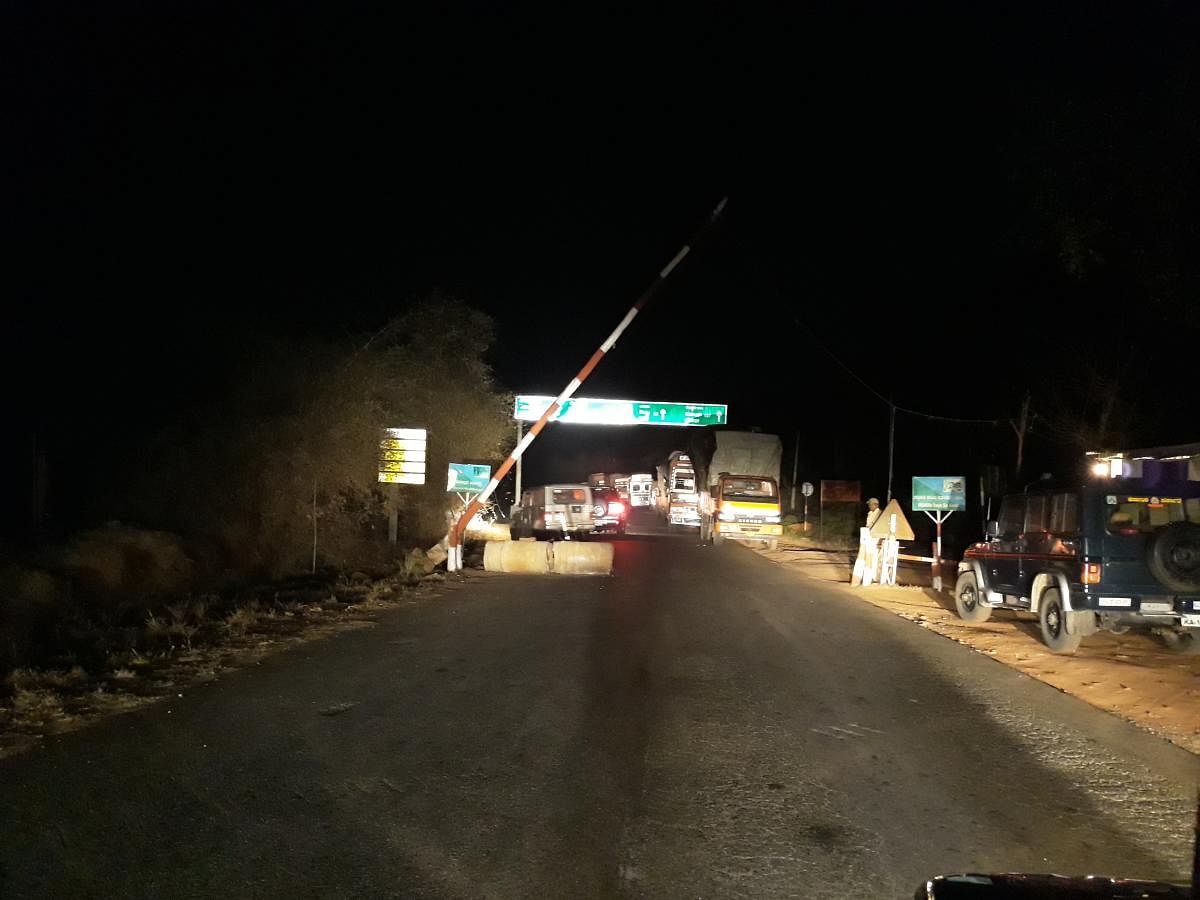Triggering a fresh controversy, Chief Minister H D Kumaraswamy has reportedly agreed to revoke the ban on night traffic on the national highway (NH) cutting through the Bandipur Tiger Reserve in Chamarajanagar.
The chief minister’s decision, at a time when the matter is currently sub judice and being heard by the Supreme Court, has left conservationists and forest department officials shocked. In fact, informing about the chief minister’s consent to revoke the ban, Y S Malik, Secretary, Ministry of Road Transport and Highways (MoRTH), has written a letter to the chief secretary.
Informing the state about the recommendations of the ministry, to be submitted before the Supreme Court, Malik stated that both the chief minister and PWD minister have “agreed to the recommendations of MoRTH and assured sending a formal consent of the state government within one week”.
The officer from MoRTH has also stated that the expression of consent was given during the meeting the chief minister and PWD minister had with Union Minister for Road Transport and Highways Nitin Gadkari on July 17 in New Delhi.
The letter by the MoRTH dated July 21, 2018, a copy of which is with DH, had left Karnataka forest department (KFD) officials and conservationists in Karnataka shocked.
Alarmed by the letter and its contents, Chief Secretary T M Vijay Bhaskar directed Additional Chief Secretary, Forest, Environment and Ecology to hold a quick meeting with KFD officials and send back the forest department’s opinion on the recommendations proposed by the MoRTH.
While Karnataka has been vehemently opposing the revocation of the ban and four chief ministers had previously refused to budge, the neighbouring Kerala government has supposedly begun to exert pressure from the Centre. As evidence, the recommendations of MoRTH appeared to be sided entirely with the requirements of Kerala while leaving out the conservation aspects.
The recommendations said, “The alternative route passes through Hunsur, Kutta, Gonikoppal and Mananthavady, of which a substantial part is hilly terrain and is about 45 km longer. Adoption of an alternative route would certainly result in an avoidable consumption of fuel (which is a huge import burden for the country) besides causing incremental vehicular emissions, which also acts against the environmental eco-system.”
Further, Malik has also recommended, “The NH remains open to the traffic for about 15 hours in a day as the restrictions are only from 9 pm to 6 am. Thus the wildlife and the human beings remain equally susceptible to conflicts/accidents during these 15 hours.” The Union government has even suggested the widening of the road, let alone revoke the ban.
The letter has left conservationists fuming at the Centre. “Documents and data by the local police suggest that the accidents on the stretch have come down by 50% following the ban on traffic. However, the Centre has overlooked all those details and prepared a skewed report to suit the demands of Kerala,” said a wildlife volunteer working in Bandipur.

